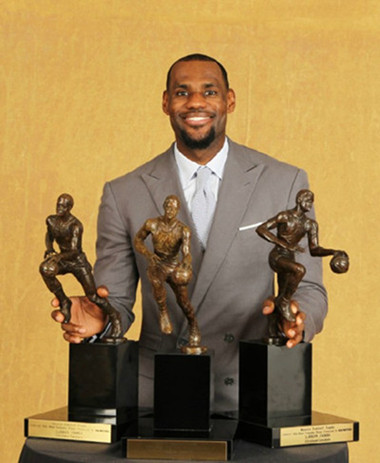Decoding the Essence of NBA’s Defensive Player of the Year Award

In the realm of professional basketball, where high-scoring duels and flashy offensive plays often take the spotlight, there exists a prestigious accolade that pays homage to the unsung heroes on the defensive end – the NBA’s Defensive Player of the Year (DPOY) award. This annual recognition not only celebrates individual excellence in defense but also highlights the profound impact a player can have on the overall success of a team through their defensive prowess.
The Evolution of the DPOY Award:
Established in the 1982-1983 NBA season, the Defensive Player of the Year award has witnessed an evolution that mirrors the changing dynamics of the league itself. Initially, the criteria for selecting the winner were subjective and lacked a standardized methodology. However, as basketball analytics advanced and the appreciation for defensive contributions grew, the NBA adopted a more comprehensive approach to evaluate and reward defensive excellence.
Selection Criteria:
The criteria for selecting the DPOY have become multifaceted, taking into account both traditional statistics and advanced metrics. While shot-blocking and steals remain fundamental indicators of a player’s defensive impact, modern analytics delve deeper, considering factors like defensive rating, defensive win shares, and opponent field goal percentage at the rim. This nuanced approach aims to provide a more holistic evaluation of a player’s defensive capabilities.
Dominant Defenders of the Past:
Over the years, the Defensive Player of the Year award has adorned the careers of some of the most iconic defensive stalwarts in NBA history. Players like Dikembe Mutombo, known for his shot-blocking prowess and finger-wagging celebration, and Ben Wallace, an undersized center who dominated the paint, are etched in the annals of basketball lore for their unparalleled defensive contributions.
In the 1990s, the imposing figure of Hakeem Olajuwon earned the DPOY twice, showcasing an unparalleled ability to guard multiple positions and alter opponents’ shots with his exceptional shot-blocking skills. Similarly, the tenacious perimeter defense of Gary Payton, who won the award in 1996, highlighted the importance of guards in disrupting the flow of opposing offenses.
Contemporary Guardians of the Rim:
In the current era, the race for the Defensive Player of the Year award is fiercely competitive, with a new generation of defensive maestros leaving an indelible mark on the league. Players like Rudy Gobert, the towering Utah Jazz center, have redefined the significance of rim protection, earning him multiple DPOY honors. Gobert’s ability to alter shots in the paint and deter opponents from attacking the rim epitomizes the modern rim-protecting big man.
On the perimeter, the likes of Giannis Antetokounmpo and Kawhi Leonard have showcased the versatility that defines elite defenders in today’s NBA. With the ability to guard multiple positions and disrupt passing lanes, these players epitomize the evolution of perimeter defense in a league increasingly reliant on three-point shooting and perimeter play.
The Impact on Team Success:
While individual accolades are undoubtedly prestigious, the correlation between a player’s Defensive Player of the Year award and team success is unmistakable. History is replete with examples of DPOY winners anchoring championship-caliber defenses. The ‘Bad Boys’ Detroit Pistons of the late 1980s, with multiple DPOY winner Dennis Rodman in their ranks, epitomized the defensive grit required for playoff success.
In recent years, the influence of Defensive Player of the Year winners on their team’s fortunes has been equally pronounced. The Miami Heat’s “Heatles” era, led by LeBron James and DPOY winner Dwight Howard, showcased how a dominant defensive force could complement offensive firepower to create a championship-caliber team.
The Defensive Renaissance:
In an era often characterized by high-scoring affairs and offensive showcases, the Defensive Player of the Year award serves as a reminder of the enduring value of defense in basketball. The evolution of the criteria for selecting the winner reflects an increased appreciation for the nuances of defense and its impact on the outcome of games.
As teams strive for a delicate balance between offensive efficiency and defensive resilience, the role of the Defensive Player of the Year takes on added significance. A player capable of not only shutting down opponents but also elevating their team’s defensive performance to championship levels becomes an invaluable asset in the pursuit of NBA glory.
Conclusion:
The Defensive Player of the Year award stands as a testament to the enduring importance of defense in the ever-evolving landscape of professional basketball. From the shot-blocking giants of the past to the versatile defenders of the present, each recipient of this prestigious accolade has left an indelible mark on the league.
As the NBA continues to embrace advanced analytics and a more nuanced understanding of defensive contributions, the Defensive Player of the Year award will likely continue to evolve. Yet, its essence – a celebration of individual excellence in the often-underappreciated realm of defense – will persist, reminding us that, in the grand spectacle of basketball, defense remains an art form that deserves its own stage and recognition.
1. What is the Defensive Player of the Year (DPOY) award?
The Defensive Player of the Year award is an annual accolade presented by the National Basketball Association (NBA) to recognize the player who has exhibited outstanding defensive skills and contributions over the course of the regular season.
2. When was the DPOY award first introduced?
The DPOY award was first introduced in the 1982-1983 NBA season, making it a relatively recent addition to the league’s list of individual honors.
3. How is the winner of the DPOY award determined?
The winner of the DPOY award is selected based on a combination of traditional statistics and advanced metrics that evaluate a player’s defensive impact. Factors such as steals, blocks, defensive rating, and opponent field goal percentage are taken into consideration.
4. Who are some of the past winners of the DPOY award?
Past winners of the DPOY award include legendary defensive players such as Dikembe Mutombo, Ben Wallace, Hakeem Olajuwon, Gary Payton, Dwight Howard, and Rudy Gobert, among others.
5. What kind of defensive skills are considered for the DPOY award?
The DPOY award considers a range of defensive skills, including shot-blocking, steals, on-ball defense, rim protection, and overall impact on the opponent’s offensive performance. Versatility in defending multiple positions is also highly valued.
6. How does the DPOY award impact a player’s legacy?
Winning the DPOY award is a significant achievement that enhances a player’s legacy, showcasing their dedication to the often-underappreciated aspect of defense. Many DPOY winners are remembered as defensive stalwarts and anchors for championship-caliber teams.
7. Has any player won the DPOY award multiple times?
Yes, several players have won the DPOY award multiple times. Dikembe Mutombo, Ben Wallace, Dwight Howard, and Rudy Gobert are among the players who have achieved this remarkable feat, highlighting their consistent defensive excellence.
8. Is there a correlation between winning the DPOY award and team success?
Historically, there is a strong correlation between a player winning the DPOY award and their team’s success. Many DPOY winners have been key contributors to championship-winning teams, underscoring the impact of elite defense on overall team performance.
9. How has the criteria for the DPOY award evolved over time?
Initially, the criteria for the DPOY award were subjective, but over time, the NBA has adopted a more comprehensive approach, incorporating advanced analytics to provide a more nuanced evaluation of a player’s defensive contributions. This evolution reflects the changing understanding of defense in the context of modern basketball.
10. Are there any current players who are frequently in contention for the DPOY award?
As of my knowledge cutoff in January 2022, players like Rudy Gobert, Giannis Antetokounmpo, and Kawhi Leonard are often considered strong candidates for the DPOY award due to their exceptional defensive skills and impact on the game. However, the landscape may have changed since then.
Please note that specific details, such as current contenders for the award, might have changed after my last update in January 2022.






